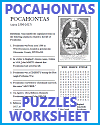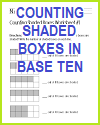Omar (2013) Movie Review and Guide |
| World History > Middle Eastern Conflict > Middle Eastern Conflict Books and Films |
 Omar (2013) is a Palestinian film that presents the political conflict that divides this Middle Eastern territory through the perspective of its young people. It is filmed in Arabic with English subtitles, and in addition to profanity and gun violence, it contains scenes of intense and extreme, bloody torture. It is absolutely not for young children, but older teenagers should be able to handle watching it. Parents are advised to use their best judgment. Omar (2013) is a Palestinian film that presents the political conflict that divides this Middle Eastern territory through the perspective of its young people. It is filmed in Arabic with English subtitles, and in addition to profanity and gun violence, it contains scenes of intense and extreme, bloody torture. It is absolutely not for young children, but older teenagers should be able to handle watching it. Parents are advised to use their best judgment.The title character is part of a small cell of young insurgents opposed to the occupying Israeli army that has taken over their homeland. One night they assassinate an Israeli soldier, but the regime hunts them down and captures Omar. The man in charge offers Omar a choice: continued imprisonment (as a result of being tricked into an admission of guilt), or being used to bring in the leader of the cell, whom they mistakenly believe pulled the trigger. Now the question is whether or not Omar will betray his friends, even as people begin to suspect that he's already guilty of being a turncoat - including the girl he loves. While the political aspects of the movie take precedence, what gives Omar its humanity is seeing the protagonist's relationship with his family, his friends, and especially his girlfriend Nadia, deteriorate as he struggles with his conflicting loyalties. Teen audiences will appreciate seeing Omar and Nadia together; theirs is an innocent, heartwarming love that is only beginning to blossom. As the sister of the cell leader, Tarek, Nadia plays a crucial role in the story. Omar loves her, but he has a rival for her affections in the person of Amjad, the youngest member of the cell, who must prove his worthiness to the cause by being the one to kill the Israeli soldier. When Omar is captured and incarcerated, Nadia and Amjad's relationship changes, and Omar must deal with the consequences after he is released. |
|---|
| Rami, the Israeli agent who acts as Omar's handler, is presented with his own distinct personality and idiosyncrasies. He loves Tic Tacs, for one thing. He speaks Arabic fluently, which surprises Omar. He also has a family. He's the antagonist, but he's shown more as a man doing his job instead of a cruel, implacable enemy to be killed. He continually insists that he's doing Omar a favor by giving him the opportunity to avoid imprisonment, at considerable risk to himself. Omar must decide whether Rami can be trusted, and if so, how far. Omar contains marvelous shots of the landscape of Palestine, from the narrow, dusty streets and sidewalks, to the building rooftops, from which one can gaze out into the mountainsides and plains beyond. The most significant aspect of the geography, however, is the wall which separates Palestine from Israeli settlements in the West Bank. We see Omar scale the wall several times over the course of the movie to be with Nadia, at great risk from sniper fire. Omar is an illuminating look into a tumultuous part of the world that balances the political with the personal, and will provide fodder for a great deal of discussion between teens and parents or teachers. The film was Palestine's entry into the Best Foreign Language Film category for the 86th Academy Awards, and is an Oscar nominee. Click here for the official film poster. |
|---|
 |
|---|
| Omar (2013) Film Review by Rich Watson - Publication Date: February 25, 2014 |
|---|











